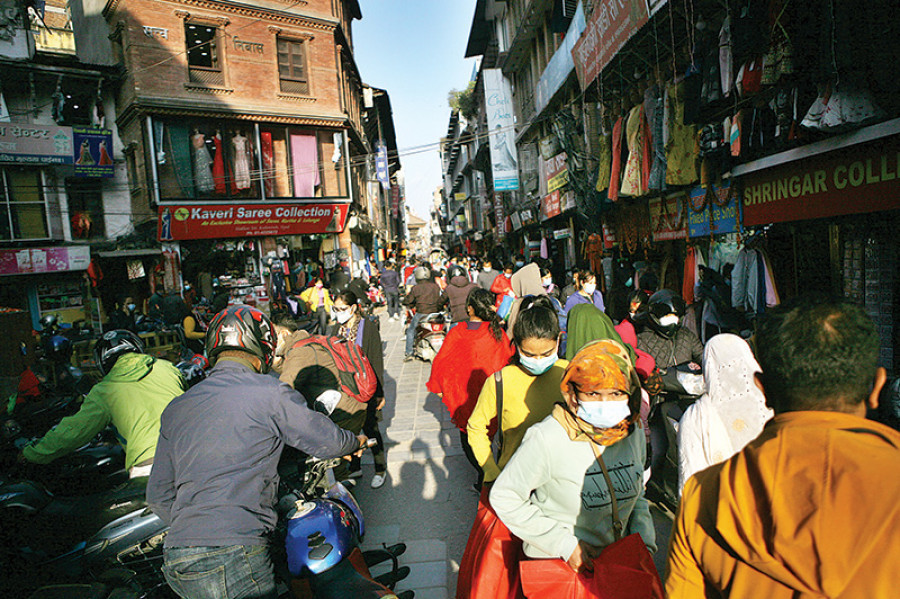Editorial
Covid-19, Part Two
We were in such a hurry to throw away our masks.
The Health Ministry has finally blurted it out: The United Kingdom variant of the coronavirus is responsible for the recent surge in cases in Nepal. What had remained a matter of speculation and fear for quite some time has now turned into a reality. Known as B.1.1.7, the UK variant is considered 40 to 70 percent more transmissible and 67 percent deadlier than the variant that caused the first wave of coronavirus infection. That the UK variant is present in a significant number of new cases—apart, of course, from the one detected last year—means we are staring at the possibility of a far more volatile situation in the coming weeks and months.
Earlier this week, Health Minister Hridayesh Tripathi minced no words in saying that the country may witness the peak of what is considered the second wave of coronavirus transmission in June if citizens were to remain lenient and continue flouting precautionary measures. For once, a top leader has spoken of the Covid-19 situation for what it is: A deadly scenario considering how we floundered during the first wave. Over a year after we were confronted by the coronavirus at home, we seem to have come back to square one. We are as unprepared to tackle the surge in the number of coronavirus transmission today as we were last year.
With 332 new cases in the past 24 hours, the graph of coronavirus transmission is rising yet again after a lull of a few months. Worse, it is more than one variant this time. Thankfully for us, the Oxford-AstraZeneca vaccine, Covishield, is said to be effective against the UK virus. While the effectiveness of the vaccine is a matter of relief, the Serum Institute of India has clearly been under strain to fulfil the demand for the Covishield vaccine that is primarily being administered in Nepal. This means that we are still far away from achieving a desirable level of immunity at the community level. Our best bet against all hues of the coronavirus, therefore, is self-discipline.
However, whether we are ready to trade our freedom with self-discipline is a tricky question. The government does not have much public legitimacy to ask people to stop congregating in large numbers and observing festivals, for its own record vis-à-vis prevention and management of coronavirus transmission has been anything but exemplary. So when it did try to stop the observation of Biska Jatra in Bhaktapur, it was met with resistance—followed by a Supreme Court interim order—and had to relent to the will of the community. So the government has only gone to the extent of 'requesting' people to observe Covid-19 safety protocols.
For all we know, the government will still be busy fighting for its own survival even as doctors and patients ask for more ventilators when transmission reaches its peak. What's more, we have a prime minister who continues to peddle pseudoscience, asking people to gargle with guava leaf juice to keep coronavirus at bay. Clearly, it is incumbent upon us to take care of ourselves, as we can't trust the government to do that for us.
More than 3,038 deaths and 279,100 infections later, we have become more stubborn than ever when it comes to following Covid-19 safety protocols. More than a year after face masks came to be considered an essential weapon against the coronavirus, many of us still wear them to cover our chin rather than our mouth and nose. Even if we wear the masks properly, we use every excuse we get to pull them off and avoid putting them back altogether. Many of us still claim we find the masks suffocating. Sanitisers, soaps and water containers are already a rarity in most public places, and, and we have stopped maintaining social distancing altogether. In our collective carelessness, we are inviting a virus attack on ourselves. It is time, yet again, to get our guard up against the deadly virus.




 9.6°C Kathmandu
9.6°C Kathmandu














